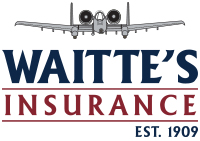 As one of the first areas to be colonized by European settlers, as well as the site of Native American activity for thousands of years, it comes as no surprise that Connecticut has a long and storied history – and where there is history, there are hauntings. Today, with Halloween approaching, you can visit numerous haunted sites across the state, absorbing the atmosphere and quite possibly getting the scare of your life. However, even among Connecticut’s many haunted places, there are a few that stand out for being exceptionally spooky. Take a look at 5 of the most haunted places in Connecticut.
As one of the first areas to be colonized by European settlers, as well as the site of Native American activity for thousands of years, it comes as no surprise that Connecticut has a long and storied history – and where there is history, there are hauntings. Today, with Halloween approaching, you can visit numerous haunted sites across the state, absorbing the atmosphere and quite possibly getting the scare of your life. However, even among Connecticut’s many haunted places, there are a few that stand out for being exceptionally spooky. Take a look at 5 of the most haunted places in Connecticut.
1. Norwich State Hospital, Preston
During its operation from 1904 to 1996, the Norwich State Hospital was the site of numerous tragedies and horrific events, from a patient who hanged himself in 1914 to a hot water heater explosion in 1919 that killed two employees. Today, the hospital stands in ruins, and has an exceedingly creepy atmosphere – numerous sightings of ghosts and reports of strange sights and sounds have been common. Although the actual facility is closed and guarded, you can view and take pictures of the hospital from the road.
2. Union Cemetery, Easton
Known as one of the most haunted cemeteries in the entire United States, the Union Cemetery contains burials dating back to the 1600s alongside modern-day graves. Famous paranormal investigators Ed and Lorraine Warren visited the site and even caught a glimpse of the White Lady, the graveyard’s most notorious ghost. Be careful of visiting at night – policemen guard the cemetery, which is off-limits after sunset.
3. Fairfield Hills State Hospital, Newtown
What is it with old hospitals and hauntings? The Fairfield Hills State Hospital housed criminally insane patients from 1931 to 1995, and, like the Norwich State Hospital, has a long and cruel history and many reports of hauntings. Unfortunately, it is strictly off-limits to visitors.
4. Dudleytown, Cornwall
Dudleytown is a ghost town in northwestern Connecticut, which was founded by Thomas Griffis in 1745. The deaths of many of its occupants have led to modern-day reports of hauntings; however, today’s owners of the Dudleytown land do not allow hikers to visit.
5. The Warren Occult Museum
Named for Ed and Lorraine Warren, the famous paranormal investigators, this museum is home to the actual doll that inspired the horror movie “Annabelle”. The doll is known to be haunted, moving on its own and even writing messages on the walls. Unlike the other sites on this list, you can visit the museum freely…if you dare!
Waitte’s Insurance Agency wishes you and your family a very fun, and SAFE Halloween!

 In New England, fall is in full force; the leaves have changed colors, Thanksgiving preparations have begun, and the air is slowly getting colder and colder as winter approaches. While these changes may signal the approach of the holiday season, however, the colder weather also signifies another change: the increased danger to your car or other vehicles.
In New England, fall is in full force; the leaves have changed colors, Thanksgiving preparations have begun, and the air is slowly getting colder and colder as winter approaches. While these changes may signal the approach of the holiday season, however, the colder weather also signifies another change: the increased danger to your car or other vehicles. Thanksgiving is a holiday that all family members can share in and enjoy; it is the one time of year when your entire family can come together, sometimes from all areas of the nation and beyond. However, the importance of Thanksgiving as a holiday can only be matched by the importance of staying safe and vigilant; because it is such a prominent holiday, there are many more dangers during this time that people don’t experience during the rest of the year. Thankfully, by taking preventative measures, you can provide a safe Thanksgiving every single year.
Thanksgiving is a holiday that all family members can share in and enjoy; it is the one time of year when your entire family can come together, sometimes from all areas of the nation and beyond. However, the importance of Thanksgiving as a holiday can only be matched by the importance of staying safe and vigilant; because it is such a prominent holiday, there are many more dangers during this time that people don’t experience during the rest of the year. Thankfully, by taking preventative measures, you can provide a safe Thanksgiving every single year. As December sets in, it’s just a matter of time until snowfall hits Connecticut, which means that it’s time to prepare your snowmobile and understand the laws attached to using it. Thankfully, snowmobiles can be extremely helpful and easy to use, as long as you understand the rules and restrictions that you need to follow.
As December sets in, it’s just a matter of time until snowfall hits Connecticut, which means that it’s time to prepare your snowmobile and understand the laws attached to using it. Thankfully, snowmobiles can be extremely helpful and easy to use, as long as you understand the rules and restrictions that you need to follow.
 1. The Salvation Army
1. The Salvation Army 2. The Wounded Warrior Project
2. The Wounded Warrior Project The passing of the Affordable Care Act, the launch of HealthCare.gov, and the establishment of numerous health insurance marketplaces all marked important changes in the infrastructure of health insurance around the country. More changes are coming in 2016, partly as a result of government changes on the national level and partly because of market shifts in response to these changes. Thankfully, you can make sure that you stay ahead of the curve by keeping track of the expected health insurance changes in 2016, including these five important projections:
The passing of the Affordable Care Act, the launch of HealthCare.gov, and the establishment of numerous health insurance marketplaces all marked important changes in the infrastructure of health insurance around the country. More changes are coming in 2016, partly as a result of government changes on the national level and partly because of market shifts in response to these changes. Thankfully, you can make sure that you stay ahead of the curve by keeping track of the expected health insurance changes in 2016, including these five important projections: When you have snow on your roof, it should melt gradually and drain into your gutters. If you have ice dams, though, melted snow isn’t able to drain properly. Ice dams form when parts of your roof near the top are warmer than the rest, causing snow in those areas to melt faster. Melted snow then runs down toward the eaves, which are colder, where it freezes and forms blockages called ice dams. These dams block additional melted snow from being able to drain into your gutters, causing it to flow under the eaves and potentially damage your home’s interior. Fortunately, you can take the following steps to prevent ice dams from forming.
When you have snow on your roof, it should melt gradually and drain into your gutters. If you have ice dams, though, melted snow isn’t able to drain properly. Ice dams form when parts of your roof near the top are warmer than the rest, causing snow in those areas to melt faster. Melted snow then runs down toward the eaves, which are colder, where it freezes and forms blockages called ice dams. These dams block additional melted snow from being able to drain into your gutters, causing it to flow under the eaves and potentially damage your home’s interior. Fortunately, you can take the following steps to prevent ice dams from forming. The month of February is American Heart Month, which means that it’s time to start thinking about how your habits impact your heart health and what you can do to improve those habits. Heart month was established by The
The month of February is American Heart Month, which means that it’s time to start thinking about how your habits impact your heart health and what you can do to improve those habits. Heart month was established by The